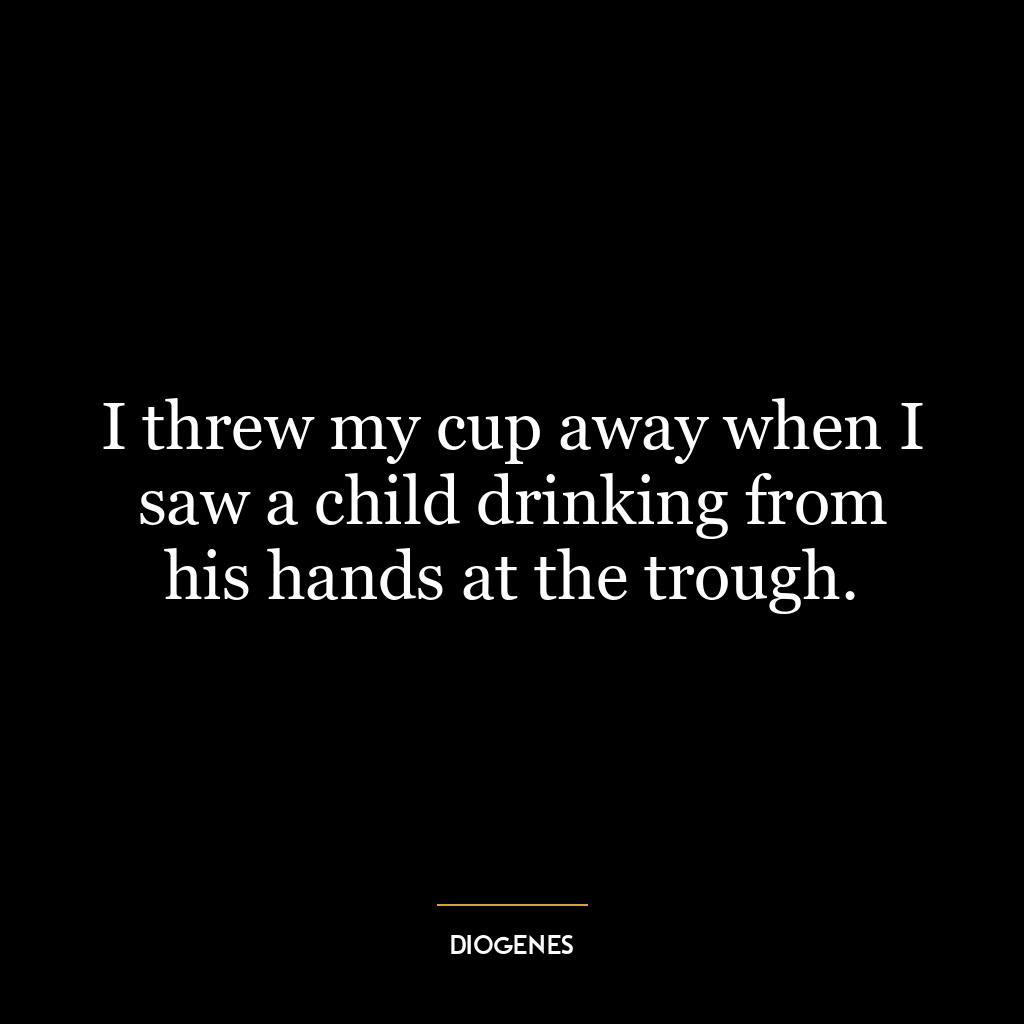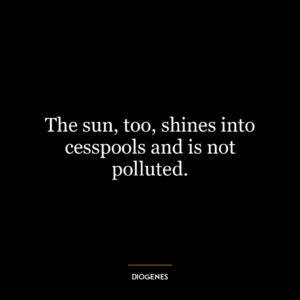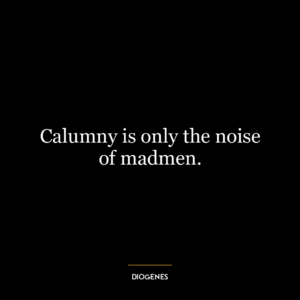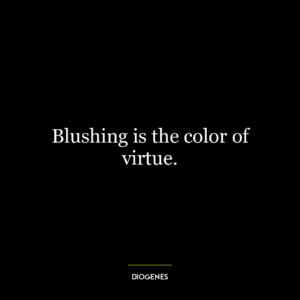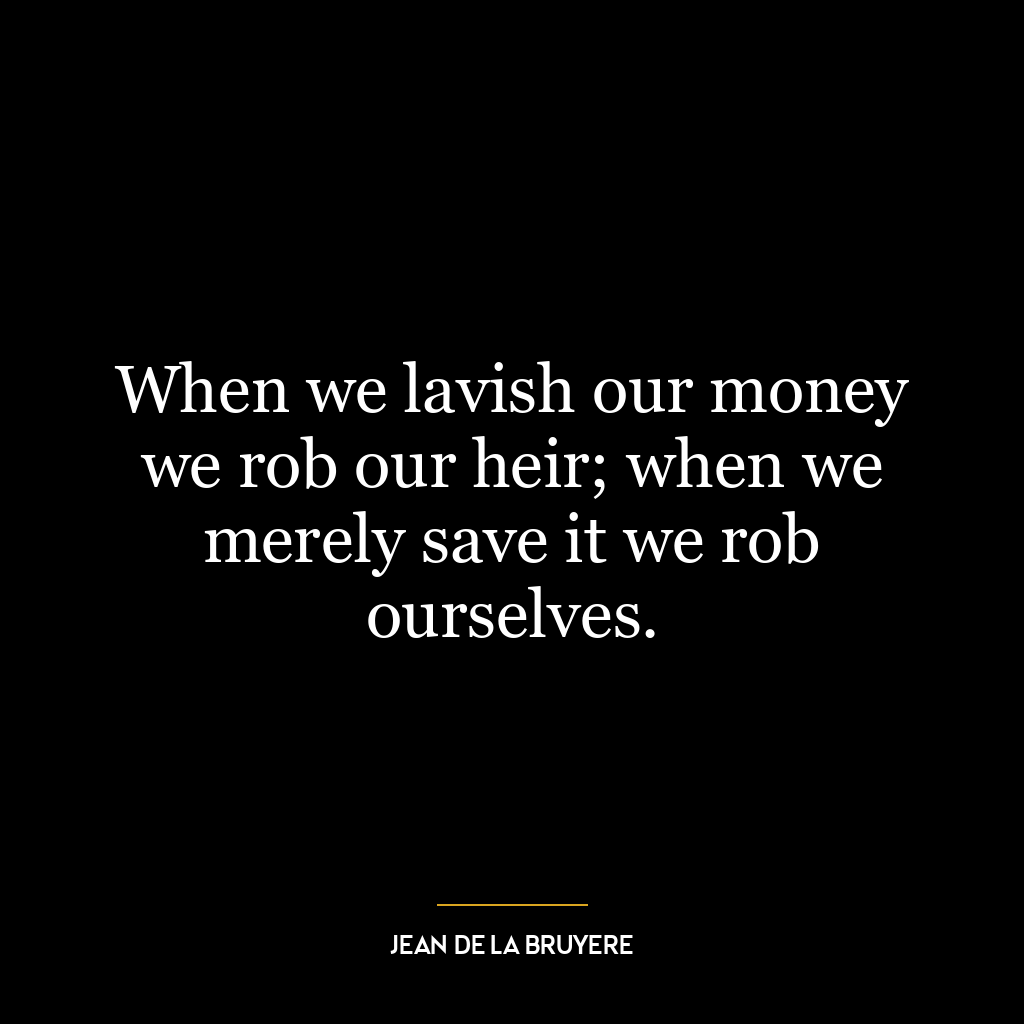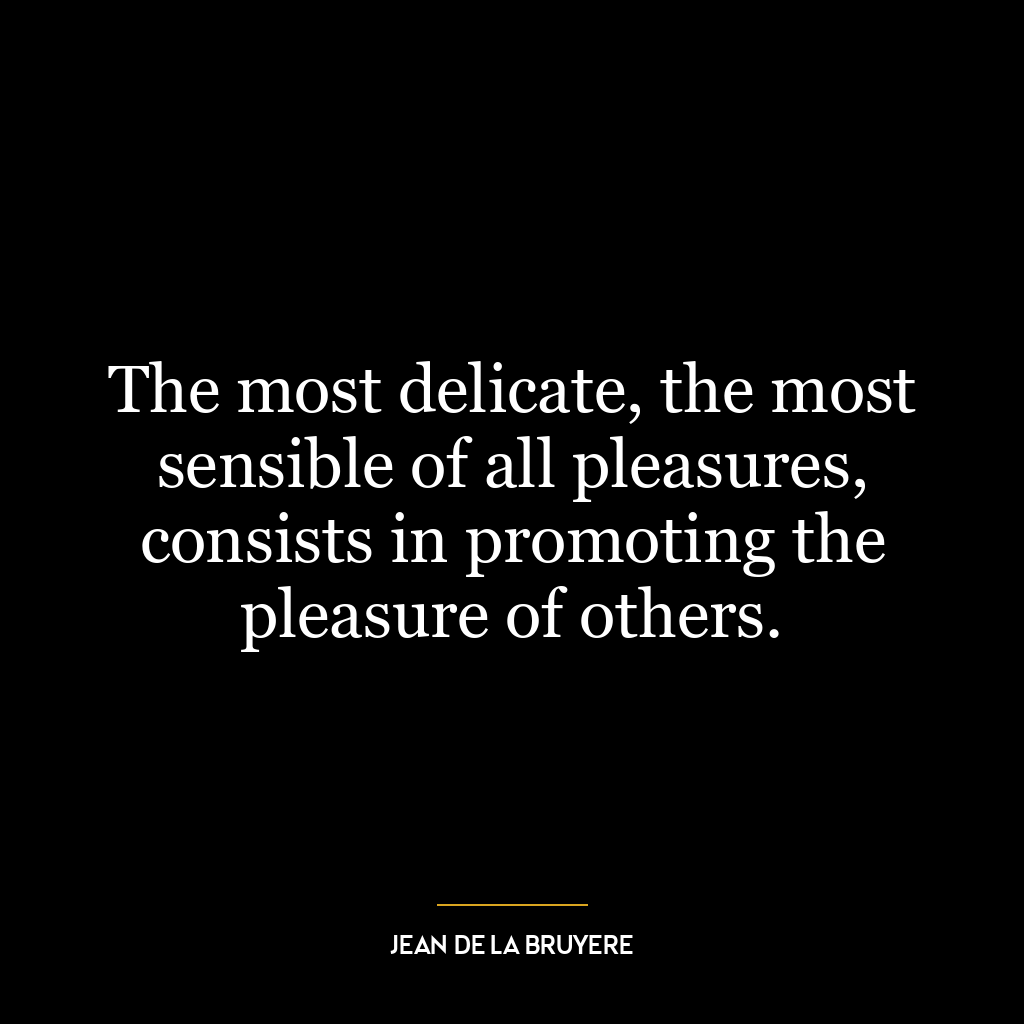This quote is a testament to the philosophy of simplicity and minimalism. Diogenes, through this statement, is demonstrating that humans often cling to material possessions and comforts that are not necessary for survival or happiness. The child drinking from his hands at the trough does not need a cup to satisfy his thirst. Similarly, Diogenes realizes that he too, does not need a cup to drink water. The cup is a symbol of excess and unnecessary luxury, and by discarding it, Diogenes is embracing a life of simplicity and minimalism.
This idea can be applied in today’s world where consumerism and materialism are rampant. We often find ourselves buying and owning more than we need, driven by societal pressures or personal desires. This quote prompts us to question our needs versus our wants, to distinguish between what is necessary and what is excess. It encourages us to let go of the unnecessary and embrace simplicity.
In terms of personal development, this quote can be a reminder to focus on the essential aspects of life and personal growth. It can help us realize that happiness and fulfillment do not come from material possessions but from within. This perspective can lead us to invest more in experiences, relationships, and personal growth rather than in material possessions. It also encourages mindfulness and conscious living, as we become more aware of our needs and actions.

